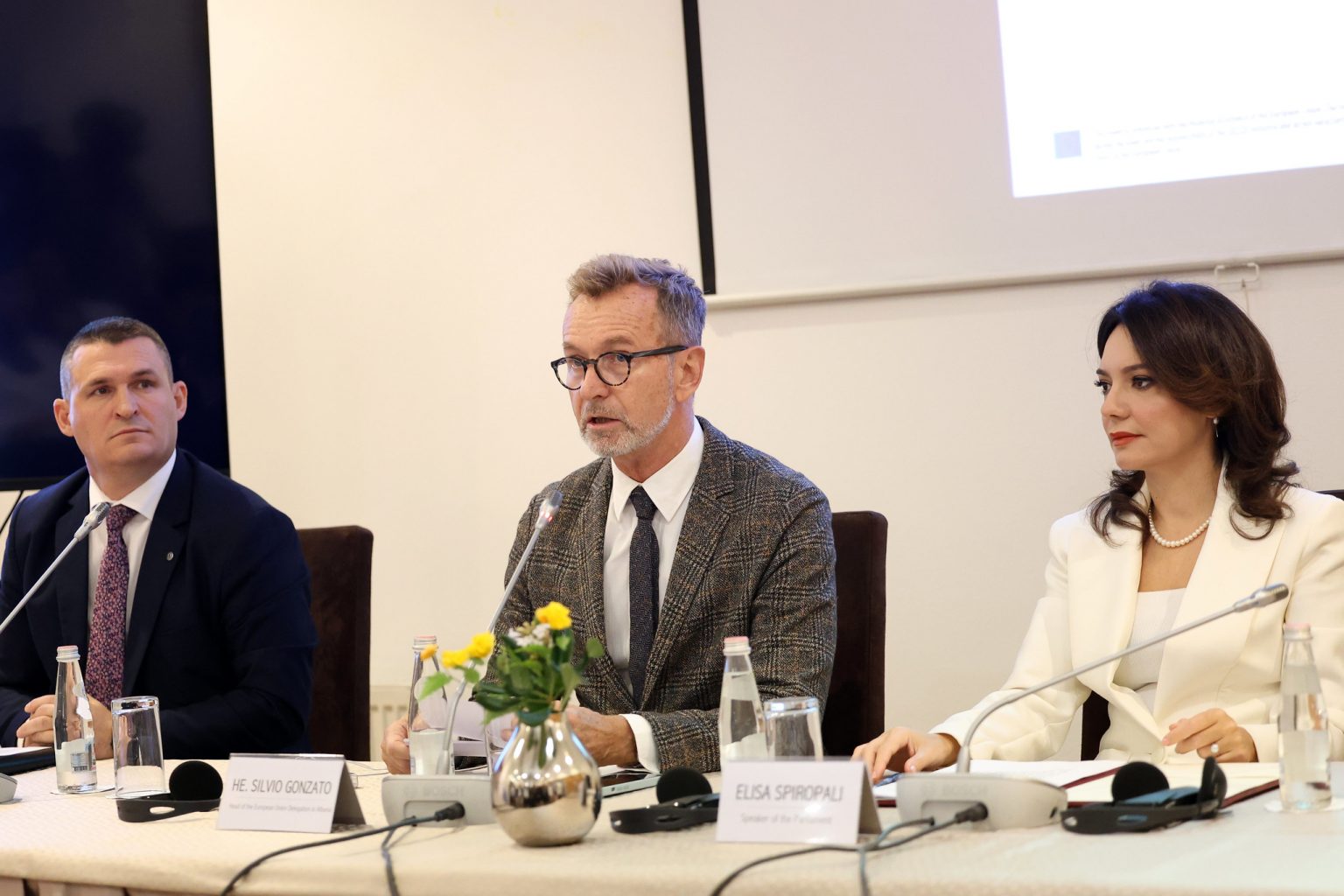SPAK Chief rejects claims of political pressure, EU praises Anti-Corruption Commission

Photo: Altin Dumani, Silvio Gonzato and Elisa Spiropali
The head of the Special Prosecution Against Corruption and Organized Crime (SPAK) stated that the institution is not under political pressure. He emphasized SPAK’s role in investigating high-level corruption cases, including former prime ministers, deputy prime ministers, and criminal organization leaders, during a regional forum on anti-corruption in Tirana.
Why is it relevant: This statement challenges opposition claims that SPAK is being used by Prime Minister Edi Rama to target political opponents. Over the past five years, opposition leaders have accused SPAK of bias. However, SPAK’s case files show that it is investigating figures across political lines, discrediting the idea of selective justice. Cases against ministers, former and current mayors, and opposition figures demonstrate the breadth of SPAK’s work.
What was said: The SPAK chief highlighted the institution’s independence, protected by legal and constitutional guarantees. He said: “We are prosecuting high-level officials, including former prime ministers, ministers, and police officers. This proves SPAK’s maturity. We have also made progress in prosecuting previously untouchable criminal figures.”
The EU Ambassador in Tirana, present at the forum, also praised the new anti-corruption commission led by Fatmir Xhafaj, architect of the judicial reforms. The Ambassador emphasized the importance of continuing anti-corruption efforts despite the progress already made. “The Parliament created a Special Commission with the aim of advancing good governance reforms, anti-corruption efforts, and the rule of law. This is an opportunity to strengthen efforts to prevent corruption by involving a range of actors and experts. In fact, it is a nationwide effort, and considering the results that have been achieved, we must continue moving forward,” he said.
Context: Despite support from EU and U.S. partners, institutions like the Constitutional Court, SPAK, and the High Justice Inspectorate declined to send experts to the anti-corruption commission. They cited objective reasons but agreed to provide documentation and collaborate on legal opinions.


